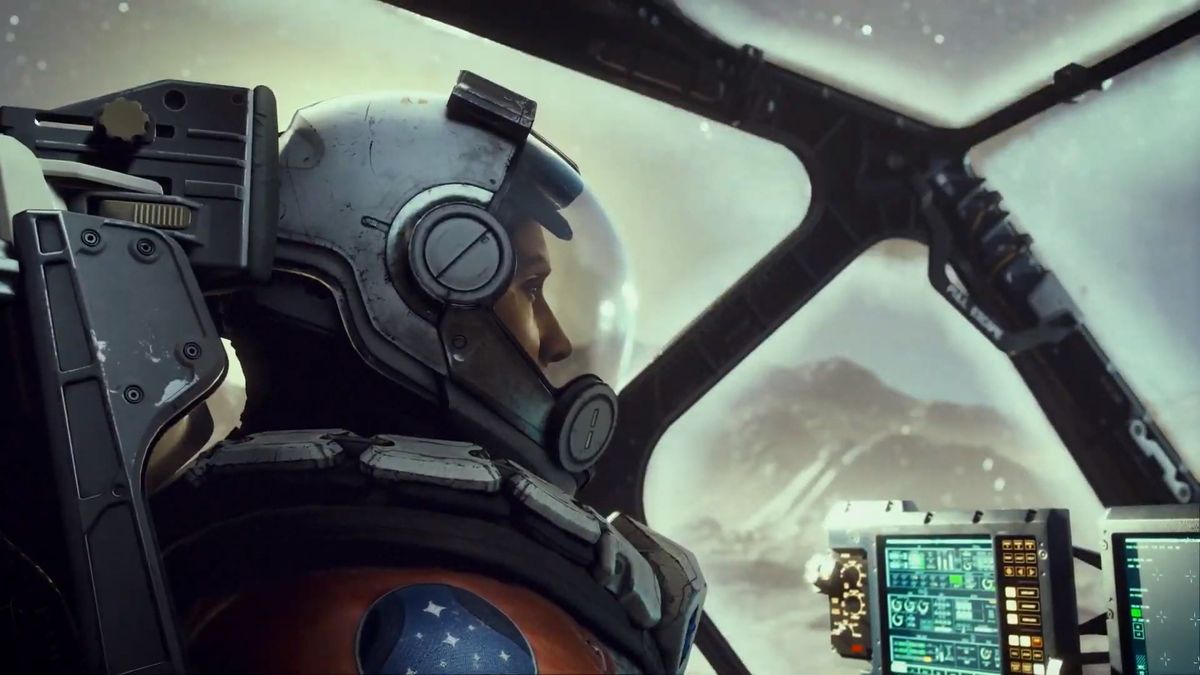Will Starfield be the RPG that delivers a more authentic persuasion system?
Bethesda's skill with wielding 'persuasion' has me counting down the days to Starfield

In RPGs, I love being able to talk my way out of things. If there's ever a persuasion skill among the stats of a character, it's always the first one I increase. Be it Coercion in Dragon Age: Origins, Charm in The Outer Worlds, or Charisma in Fallout 4, there's nothing I enjoy more than passing speech checks thanks to my silver tongue. I've always been fond of the idea of being a smooth talker who would rather choose to use words to resolve conflicts. Alongside being able to avoid combat in certain situations, there are also usually added bonuses to utilizing this kind of skill – hearing unique dialogue, and earning more money or bonus items. While it's always fun to pass speech checks because you've invested in the skill, there's still a part of me that yearns for a new RPG with a persuasion system that feels more organic.
Rather excitingly, Starfield could potentially deliver. The developers at Bethesda spoke briefly about a persuasion feature in the latest Into the Starfield video update. While the team didn't go into much detail at all, what they did say has me intrigued. I certainly don't want to pin all my hopes on it, but it's got me thinking about why I find this particular kind of dialogue skill so compelling, and how Bethesda could learn from the similar systems we've seen in its own games and other RPGs to create an interesting persuasion feature.
Play your way


How Starfield should use its companions to breathe life into Bethesda's new universe.
What often makes RPGs so appealing is the freedom they can afford you to play a character in whatever way you wish. Whether that be deciding what approach the protagonist takes in any given situation, what relationships they form, or how they engage in combat, the control you have allows you to really feel like you are truly role-playing in a virtual space. Starfield promises to allow us to "create any character you want", and as someone who likes to play as eloquent adventurers who kick butt with words – and sometimes weapons – I'm naturally all too happy to hear design director Emil Pagliarulo first mention the team's desire to bring in "some kind of persuasion mini-game thing."
While that's a pretty vague statement by itself, what lead quest designer Will Shen and game director Todd Howard went on to say really piqued my interest. Shen revealed that there "are a couple of beats" in the system that harkens back to the old persuasion mini-game in 2006's The Elder Scrolls IV: Oblivion. "You have to think about, 'What's my risk here? Which one do I want to choose?' We didn't want it to be a system where there was definitely the right thing to say."
The Oblivion mini-game uses a wheel with four different responses that you can use to try and raise your affinity with NPCs. With Joke, Coerce, Admire, and Boast, you have to use each one once during the mini-game, but it's all about the order in which you do them. NPCs like certain responses more than others, as indicated by the colored wedges in the wheel – their facial expressions also indicate how they feel about the action you're doing. As systems go, it takes some getting used to, and it's certainly not the most elegant persuasion mini-game. In fact, more often than not, I'd take to bribing NPCs instead.
Still, I do appreciate the way the Oblivion system plays on the idea that every NPC has different likes and dislikes, and you have to consider them to successfully earn their trust. I'm definitely keen to find out how Starfield's system could be playing on that particular "beat" of the minigame – I really hope it encourages you to think through your approach.
Conversations

But when it comes to persuasion, I much prefer choosing dialogue in conversation over any kind of fixed side minigame. Happily, it sounds like Starfield may be leaning in this direction anyway. Howard added that the persuasion system "feels like you're having a conversation where you're actually trying to persuade somebody of something". The idea of "having a conversation" is what my hopes keep sticking on. Many, if not all, of the persuasion systems I've come across in RPGs tend to offer up a single dialogue option that's clearly marked as a persuasion speech check. Some are differentiated by color like in that of Fallout 4 or Mass Effect Legendary Edition (with its Paragon or Renegade charm and intimidate options), while in games like Dragon Age: Origins and The Outer Worlds, the lines of dialogue have the word persuade in parentheses.
Sign up to the 12DOVE Newsletter
Weekly digests, tales from the communities you love, and more
I would love to see an RPG change things up a bit and make your persuasiveness feel more authentic and free-flowing. Perhaps this could be done by playing out a conversation with multiple options that you have to think about to successfully convince someone to see your side, or help you out. It could even still work out like a minigame, whereby you could only engage in this specific persuasion-orientated conversation if your skill is high enough. Howard added that "as far as new systems in dialogue, I think it's definitely one of the most successful ones that we've had," and while not much more was said, it's definitely one feature of Starfield I can't wait to experience.
It's still early days and we don't know all that much about the systems of Bethesda's new RPG, but the mention of a persuasion-style feature just adds to my excitement. If I truly can make any character I want, I'm already envisioning a space-faring adventurer who uses their words to their advantage. Who knows how or if it will work, but I can't wait to discover it for myself.
Be sure to check out our roundup of all of the new games for 2022 and beyond to see what else is on the horizon.

I started out writing for the games section of a student-run website as an undergrad, and continued to write about games in my free time during retail and temp jobs for a number of years. Eventually, I earned an MA in magazine journalism at Cardiff University, and soon after got my first official role in the industry as a content editor for Stuff magazine. After writing about all things tech and games-related, I then did a brief stint as a freelancer before I landed my role as a staff writer here at 12DOVE. Now I get to write features, previews, and reviews, and when I'm not doing that, you can usually find me lost in any one of the Dragon Age or Mass Effect games, tucking into another delightful indie, or drinking far too much tea for my own good.
Ultima creator Richard Garriott considered a tabletop version of the pioneering open-world RPG series but isn't sure it would sell: "May be worth finding out"
The Witcher 3 director's new vampire open-world game sure sounds like it took a page from the D&D and Baldur's Gate playbook: "Sometimes it feels like playing a paper RPG"
Most Popular
